The noughties lunch box rules that didn’t exist when you were a kid
PACKING a school lunch these days is a minefield: Peanut butter is banned, cling wrap is bad and chocolate is a crime. These are the lunch box do’s and don’ts we have to navigate in 2018.
VIC News
Don't miss out on the headlines from VIC News. Followed categories will be added to My News.
FORGET Nutella sandwiches and strawberry-iced doughnuts.
If it’s not allergen-friendly, sugar-free or a carrot stick, it’s not likely to make it past the lunch box police.
The humble school lunch box has been given a ‘healthy’ makeover and now just about anything store bought, glutinous, nut-filled or plastic-wrapped is off the lunch menu.
SCHOOL LUNCH BOXES RATED: WOULD YOUR KIDS’ LUNCHES PASS THE HEALTHY TEST?
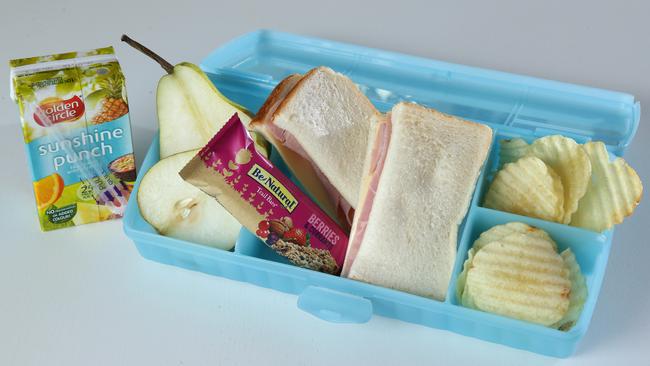
And, if it’s not homemade or hand-rolled, forget about it.
That means Dunkaroos, Rollups and Tiny Teddies are out, while veggie soldiers with cream cheese, bliss balls and air-popped organic popcorn are in.
CHEF’S TIPS FOR PACKING A LUNCH BOX KIDS WILL LOVE
Even sandwiches have had their foodie freedoms restricted.
Instead of regular stras and cheese, honey or jam sandwiches cut into triangles, today’s lunch box sanctions mean nitrate-containing processed meats and sugary spreads are a breach of lunch box nutrition regulations.
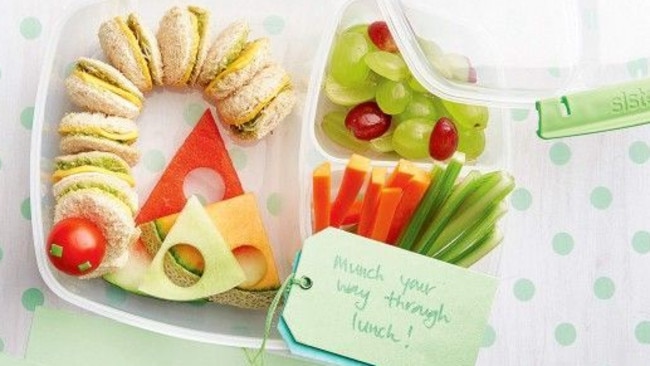
Why send your six-year-old to school with butter and Vegemite triangles (on frozen bread) when you can give them a wholegrain cucumber, avocado and alfalfa sandwich that has been cut it into rounds and neatly arranged in a BPA-free, plastic container in the shape of a caterpillar, using a cherry tomato as the face and poppy seeds dipped in cream cheese as the eyes?
Apparently they’ll have so much fun eating it that they won’t notice it’s a green, avocado and alfalfa sandwich.
HOW TO GIVE CHILDREN A HEALTHY LUNCH BOX
Firstly, aint nobody got time for dat.
Secondly, as soon as that lunch box gets thrown into the schoolbag, that caterpillar is going to transform not into a butterfly, but a soggy, obliterated mess.
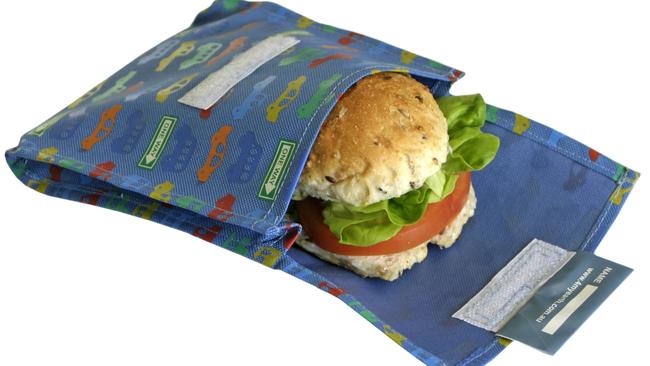
And let’s not get started on the outlawing of tinfoil and brown paper bags (is this a Tupperware-selling conspiracy?).
As if having to cookie-cut every sandwich into caterpillars isn’t enough, once you add in a nightly dishwasher load of lunch box-approved plastic containers that will, invariably, come home missing lids, the lunch box routine is almost a full-time job.
WHAT YOU WISHED WAS IN YOUR LUNCH BOX
But accredited nutritionist Lucinda Hancock, CEO of Nutrition Australia’s Victoria division, says packing a nutritious lunch they’ll actually enjoy eating doesn’t have to be a chore.
“Children spend the majority of their day at school, so it’s important to send them with a nutritious balance of tasty food to fuel their active minds and bodies,” she says. “While there are no official lunch box guidelines, the key to packing a nutritious lunch box that your kids will love is to include something from each food group.”
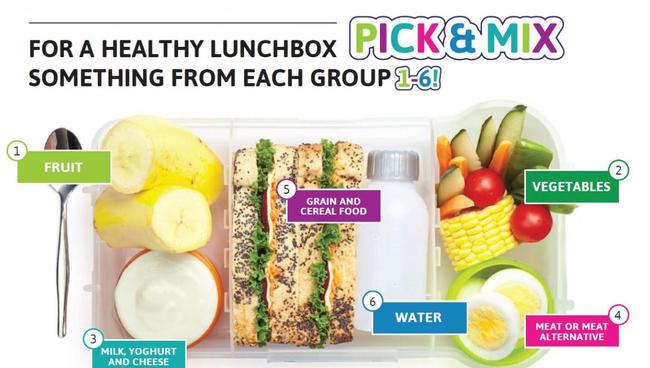
Enter Nutrition Australia’s Pick n Mix 1-6 guide.
“The great thing about the ‘Pick n Mix 1-6’ method is that it gives you and your children so much choice,” Hancock says. “Simply pick and mix at least one tasty option from each food group to create a nutritious lunch box every day.”
That means a daily lunch box could look something like: an apple, veggie sticks and dip (such as hummus), cheese cubes and a roast chicken sandwich on seedy bread. Or you could pack some natural yoghurt topped with chopped up peaches or banana, cooked corn cobs, a boiled egg, rice crackers and some cherry tomatoes.
21 IDEAS TO MAKE YOUR SCHOOL LUNCHES FUN, FAST AND TASTY
The options are endless and, the best part, don’t require parents to spend hours in the kitchen.
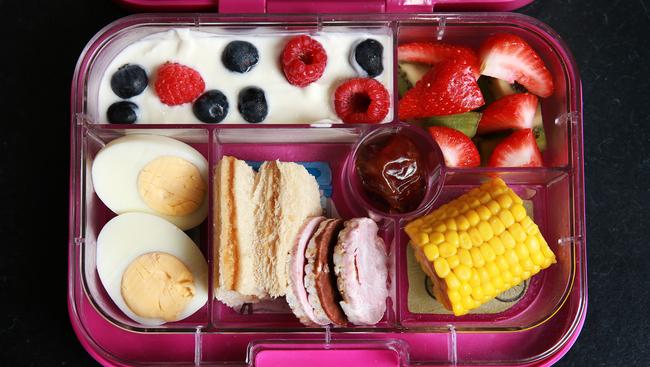
What about fussy kids?
But what if your kid doesn’t like celery and cottage cheese, you ask? Hancock assures this is normal and kids won’t go hungry voluntarily.
“Introduce new items when you can, and don’t be discouraged if your child doesn’t eat something on the first attempt,” she says. “Kids can be fussy with their food, but it’s often due to them being unfamiliar with something than a genuine dislike. It can take up to 10 times for a kid to try a food before they develop a preference for it.”
She also suggests involving children in packing their own lunch box because they’re more likely to eat something if they’ve chosen it themselves. You can even take them shopping with you so they can choose the fruits and veggies they want.
But be savvy in the supermarket, Hancock warns, because not all products that claim to be ‘good for lunch boxes’ or ‘canteen approved’ are actually nutritious choices.
And if at first you don’t succeed, you can always wrap it up and try again.
“Keep offering new foods even if your kids reject them at first,” she says. “And if your child won’t eat what’s in their lunch box, pop it in the fridge and offer it again later if they say they’re hungry.”
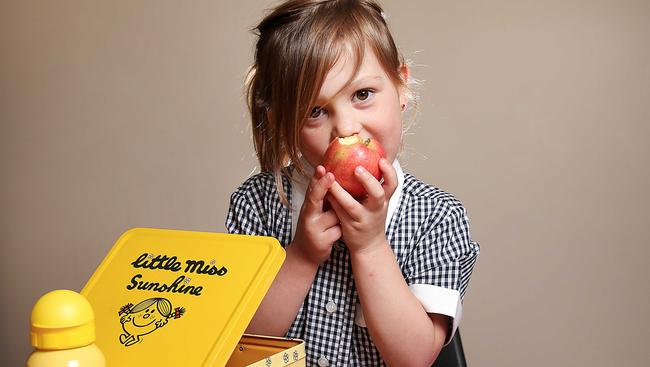
Can you pack treats?
The thing with treats, or ‘sometimes’ foods, Hancock says, is that if you have them every day they become routine.
“Nearly 40 per cent of the energy (kilojoules) our children consume each day comes from unhealthy foods and drinks like confectionery, cakes, pastries, salty snacks, deep fried foods and sugary drinks,” she says. “These foods are often high in added salt, saturated fat or sugar, and have almost no nutritional benefits. And they can take the place of healthier foods that Aussie kids don’t get enough of, particularly vegetables and dairy.”
To give kids their best chance of a balanced, wholefoods-based diet, Hancock recommends limiting ‘treat’ foods in the lunch box, like lollies, cakes and biscuits.
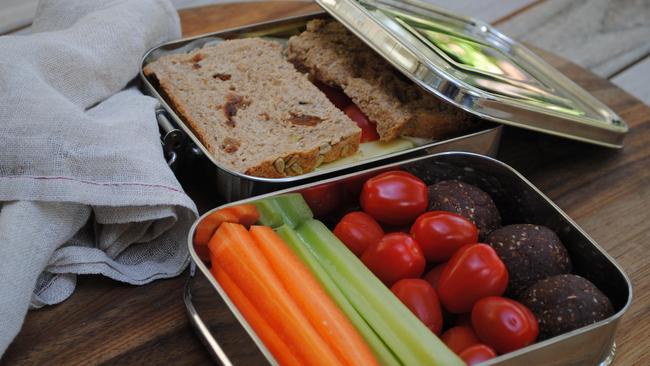
How to plan a healthy lunch box
1. Make time to prepare. Have fresh fruit and vegetables, milk and yoghurt, bread and crackers all bought in advance.
2. Shop wisely and save money. Buy fresh fruit and vegetables that are in season to ensure good quality and value for money.
3. Make your own snacks. For example snack packs from fresh ingredients that you can buy in bulk.
4. Look after the environment. Put sandwiches and other items in reusable containers. This uses less packaging and creates less rubbish.
5. Choose a variety of foods from the five food groups.
6. Include a bottle of water. No need for sweetened drinks such as juice, cordial or soft drink as these contain too much sugar, which is not good for teeth. Non-water drinkers usually start drinking water with the example of other children. Freeze a small quantity each night and top up with cold water in the morning for a cool summer drink.
7. Keep food cool. In warm weather freeze a water bottle or put a small ice pack in the lunch box.
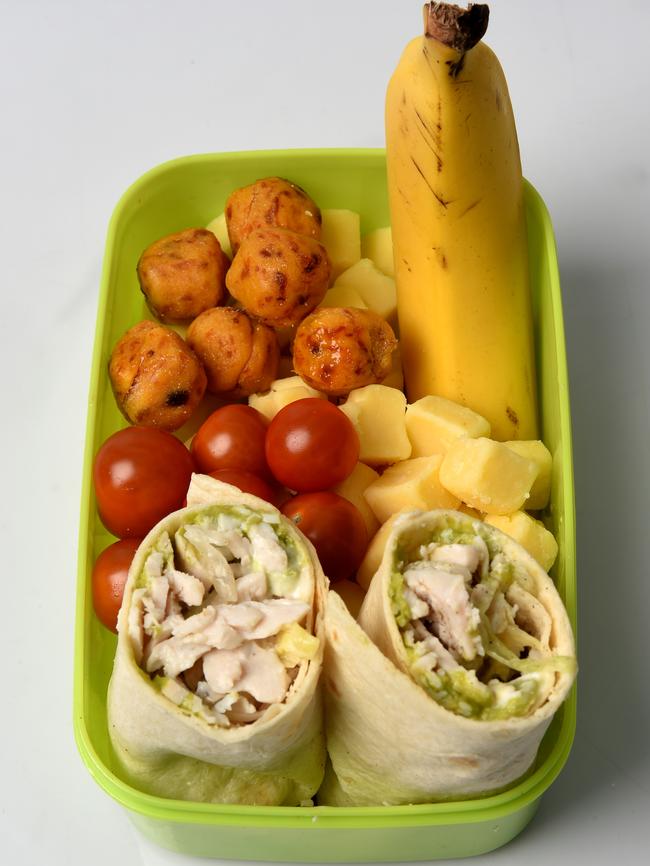
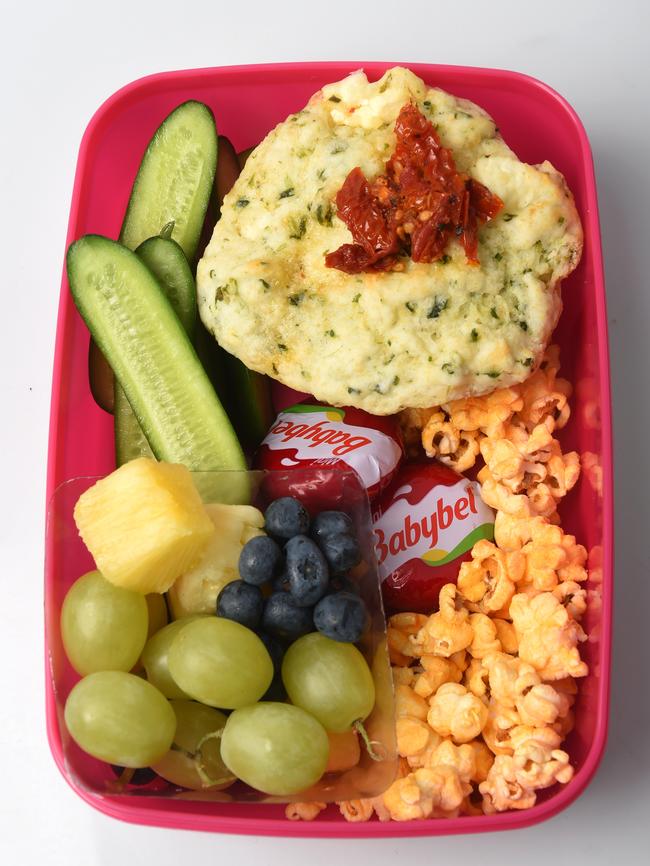
Healthy lunch box ideas
Mix and match the following samples to keep your kids interested in the food you provide:
Lunch box 1
Fruit in season
Boiled egg
Vegetables with natural yoghurt
Pita bread, filled with salad vegetables or tabouli and lean rissoles
Water
Lunch box 2
Wholemeal pikelets
Frozen UHT reduced fat milk 125mL
Vegetarian pizza or a sandwich
Vegetable pack
Fruit salad
Reduced fat yoghurt
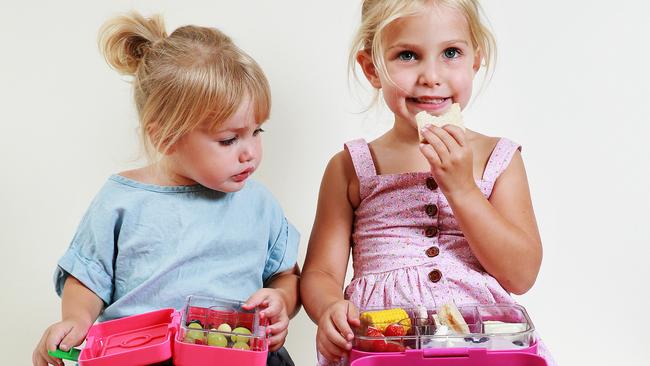
Lunch box 3
Fruit in season
Egg, lettuce, tomato, cheese multigrain sandwich
Vegetable sticks
Slice of fruit bread
Dried fruit and nuts
Frozen UHT reduced fat milk 125mL
Lunch box 4
Fruit in season
Bread roll filled with vegetables, cheese and a slice of lean roast beef
Reduced fat yoghurt
Grapes
Water
For more information visit: nutritionaustralia.org or heas.health.vic.gov.au/schools



